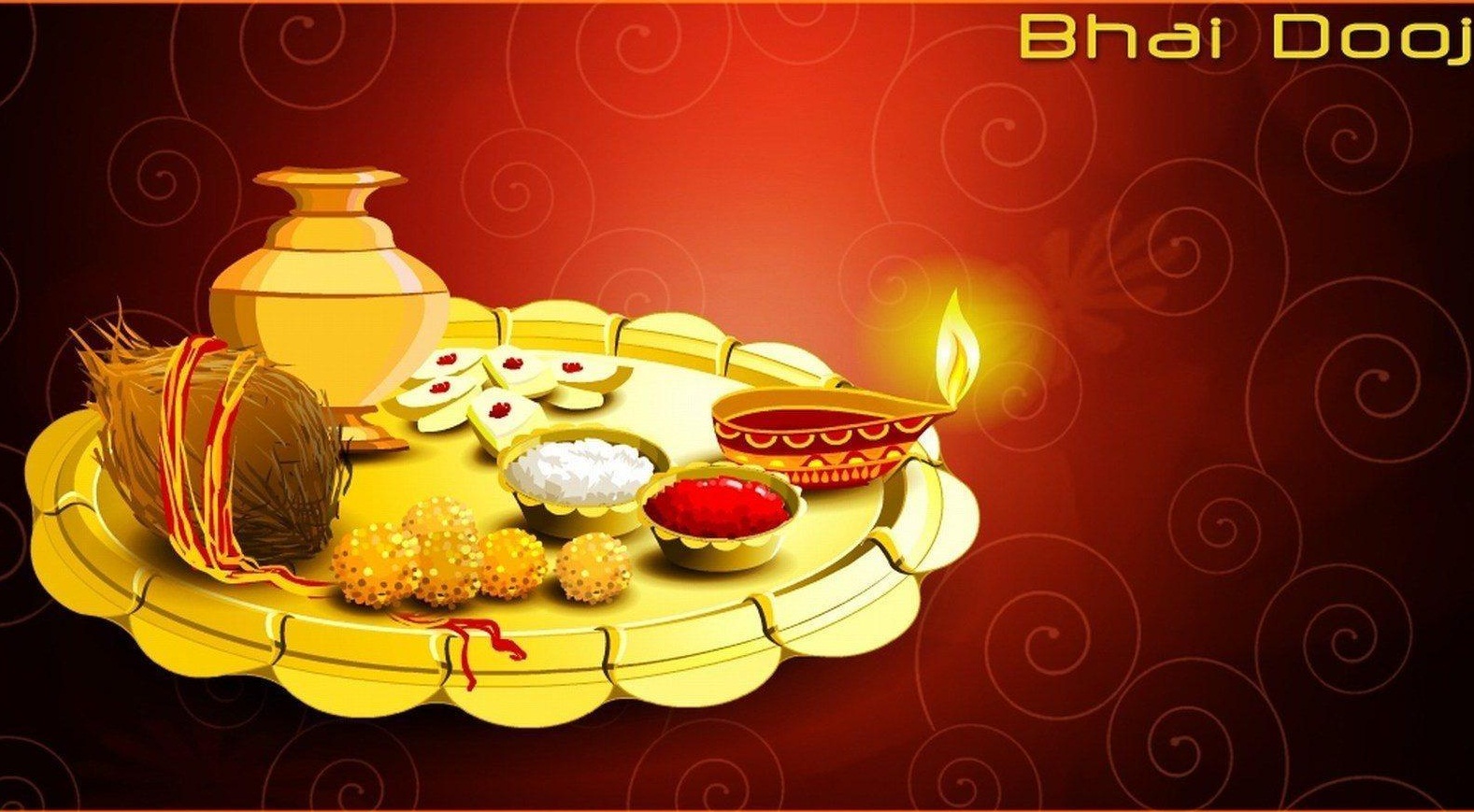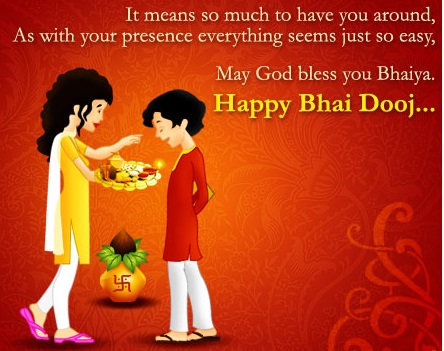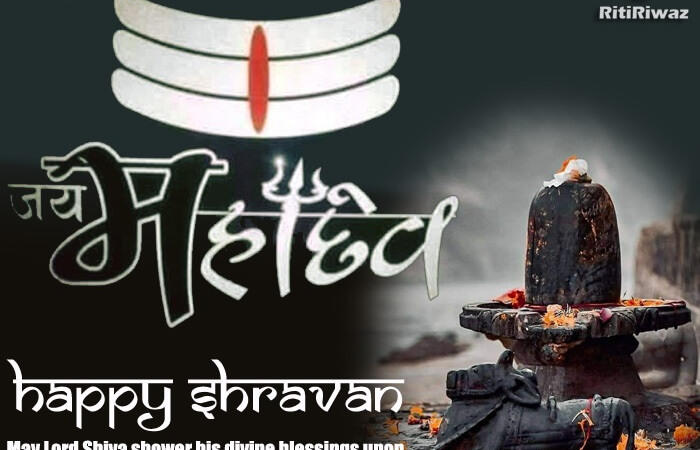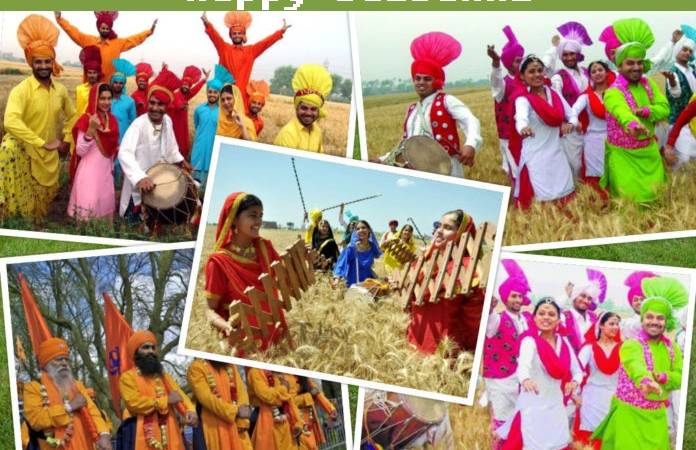Bhai Dooj – Celebrating bond between brother and sister

‘Bhai’ means brother and ‘Dooj’ means two days after the new moon, this festival is celebrated between brothers and sisters other than Raksha Bandhan to strengthen the bond of their love. Bhai Dooj is celebrated on the second day of Diwali, it’s a day dedicated to the love between brother and sister.
On this day, sisters pray and wish for the long life, health, wealth, and prosperity of their brothers. The brothers in return take a lifelong vow to protect their sisters. On the day of Bhai Dooj, brothers and sisters reaffirm their pious bond of affection.
In 2023 Bhai Dooj will be celebrated on Wednesday, November 15th.
After the festival of lights, sisters get ready for ‘Bhai Dooj‘, Bhai Phota, Bhai Tij, Chaiya Phota, Bahu Beej, Bhathru Dwithiya, Bhatri Ditya, or Yamadwitheye – when sisters ceremonies their love by putting a fortunate tilak on the forehead of their brothers and perform an Aarti by showing him the light of the holy flame as a mark of affection and protection from evil forces. On this day, sisters pray for the prosperity and well-being of their brothers. In return, the brother offers gifts and sweets to their sisters as an expression of love.
Each region pronounces it with a different name Bhayya Duj (Hindi), Yama Dwitiya, Bhagini Hasta Bhojana (Sanskrit), Sodara Bidige (Karnataka), Bhai-Tika (Nepal), Bhai Phota (Bengal), Bhav-Bij (Maharashtra).
The essence of the Bhai Dooj or Bhai Phota festival is that it is celebrated to toughen the love between brothers & sisters. It is a day of gift-giving, food-sharing, and reaching out to the deepest depths of the heart. Sisters and Brothers indulge themselves on this special occasion by giving each other gifts.
History
According to Legends, Yamraj, who is the God of Death according to Hindu mythology, went to Yami, his sister on this day. She applied special tilak on his brother’s forehead and also garlanded him along with feeding him with tempting dishes. They celebrated the day happily together and drew great pleasure to the content of their heart. When they parted, Yamraj gifted her sister a special present as his token of love and similarly, Yami also gifted her some lovely present which was her handmade gift. That day there was a declaration by Yamraj that people who would receive tilak from their sisters would never be thrown. Therefore, this Bhai Duj day is also referred to as Yama Dwitiya.
There is another belief that Lord Krishna had gone to his sister, Subhadra when he annihilated Narakasura demon. He was welcomed by his sister with an aarti, sweets, and flowers. Then she applied the Tikka i.e. the holy tilak on Krishna’s forehead for protection. It is since that day that the festival of Tikka is being celebrated as a symbol of love between sisters and brothers. These legends have been followed since then and it became a tradition that the brother has to go to his sister’s place for celebrating Bhai Dooj.
There is one more interesting story behind the celebration of the Bhai Dooj festival. Legends say that the founder of Jainism, Mahavir, when attained nirvana, King Nandivardhan, his brother got distressed as he had missed him and was then comforted by Sudarshana, his sister.
Ceremony
On Bhai Dooj, the brothers are invited by their sisters for having a tempting meal usually having their favorite food. This ceremony basically lays emphasis on the duties of the brothers for protecting their sisters along with the blessings of sisters for their brothers.
The ceremony is carried forward in a traditional way with sisters performing aarti for their brothers and applying a red tika on the forehead of their brothers. The tikka ceremony on the Bhai Dooj occasion exhibits the sister’s prayers for the happy and long life of the brother. Subsequently, the brother blesses his sister and offers her gifts or even cash.
This custom is followed in the states of Haryana and Chandigarh as a grand affair and the sisters who do not have brothers worship the God moon instead. The sisters also apply Mehendi on this occasion as a common tradition.
The sisters who have their brothers living far away from them and are unable to visit their house, send the sincerest prayers for the happy and long life of their brothers through the moon god. The sisters perform aarti for the moon god. This is why the children of Hindus call the moon Chandamama where Chanda signifies the moon whereas mama refers to the mother’s brother.
Astronomical Significance of the 2nd day of Krittika
As per the Devi Bhagavata and Taittiriya Samhita, the Devas’ Raasa starts in the month of Karttika. The Raasa is the formation process in which consciousness remains to be the control center having all others moving around it.
Vishakha and Krittika are the two intersection points of the equator and ecliptic. The axis of the earth moves in a circular way in a period of 26,000 years. The first point has 2 branches starting like blades of a pair of scissors and opposite points joining the 2 branches called Vishakha or Dvi-shakha. Therefore, the occasion of Yama-Dwitiya happens to be on the 2nd day of Karttika symbolizing a pair of sister-brother.
Vishakhapatnam has two rivers named Vamshadhara and Nagavali starting from the same place but these are found to be separated all through the journey till the sea, therefore, it is called Vishakha.
Story Related to Bhai Dooj
Mythologically speaking, there are two sides of this beautiful festival’s origin, one is that of Krishna- Subhadra’s story and the other one is of Yamraj – Yamuna’s story. As far as Lord Krishna and his sister, Subhadra’s story is concerned, it is said that Lord Krishna visited his sister’s place after killing Narkasura. To make the day special for him, she greeted by applying a tika on his forehead and pampered him with sweets and flowers.
Other than this story, people also happen to believe the story which revolves around the Lord of death, Yamraj, and his sister, Yamuna. As per some old saints, it was said that Lord Yamaraj visited his sister, Yamuna on this day, after ages. Hence, she greeted him with sweets and applied a tika on his forehead. Yamraj was so happy to see his sister grace his presence this beautifully, that he declared henceforth whoever shall celebrate this festival with their brothers/sisters will be given the boon of long life. That is the reason, Bhai Dhuj is also referred to as Yama Dwitiya in some cultures and by some people.
भैया दूज की कथा
छाया भगवान सूर्यदेव की पत्नी हैं जिनकी दो संतान हुई यमराज तथा यमुना. यमुना अपने भाई यमराज से बहुत स्नेह करती थी. वह उनसे सदा यह निवेदन करती थी वे उनके घर आकर भोजन करें. लेकिन यमराज अपने काम में व्यस्त रहने के कारण यमुना की बात को टाल जाते थे।
एक बार कार्तिक शुक्ल द्वितीया को यमुना ने अपने भाई यमराज को भोजन करने के लिए बुलाया तो यमराज मना न कर सके और बहन के घर चल पड़े। रास्ते में यमराज ने नरक में रहनेवाले जीवों को मुक्त कर दिया। भाई को देखते ही यमुना ने बहुत हर्षित हुई और भाई का स्वागत सत्कार किया। यमुना के प्रेम भरा भोजन ग्रहण करने के बाद प्रसन्न होकर यमराज ने बहन से कुछ मांगने को कहा। यमुना ने उनसे मांगा कि- आप प्रतिवर्ष इस दिन मेरे यहां भोजन करने आएंगे और इस दिन जो भाई अपनी बहन से मिलेगा और बहन अपने भाई को टीका करके भोजन कराएगी उसे आपका डर न रहे।
यमराज ने यमुना की बात मानते हुए तथास्तु कहा और यमलोक चले गए। तभी से यह यह मान्यता चली आ रही है कि कार्तिक शुक्ल द्वितीय को जो भाई अपनी बहन का आतिथ्य स्वीकार करते हैं उन्हें यमराज का भय नहीं रहता।
Similar Festival
There is no place where the bond of affection between a sister and a brother is glorified to such an extent as in India. The Hindus honor this beautiful relationship two times every year through the festivals of Bhai Dooj and Raksha Bandhan.

Bhai Dooj 2024: Wishes, Quotes, Messages, Facebook post & Whatsapp status






